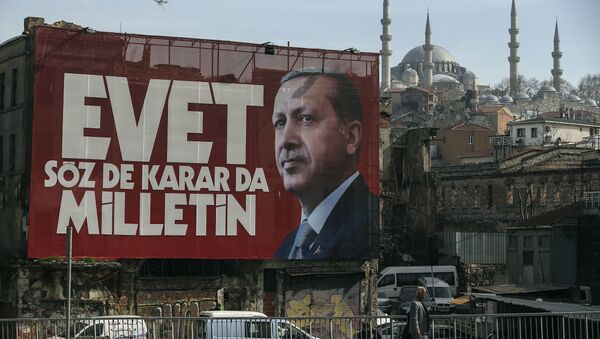At the same time, the expert believes that the vote on the constitutional reform won't significantly change the current policy in the country.
"No matter if ‘Yes' or ‘No' comes out, we are not expecting anything surprising in the short run. If it is ‘Yes,' we would still have a dictatorship, which we de facto already have. With a ‘No,' I fear that there might be a bloodbath again, as it was after the coup in July 2016," the expert said.
According to Vatansever, by a ‘No' vote, Erdogan's reaction could be harsh as he is not ready to lose and will try to maintain his power by all means.
"He would not accept this as the result of a democratic procedure. He would try to maintain his dictatorship at any cost," the expert said.
According to the OSCE observation mission report, the referendum campaign in Turkey could be characterized by "polarization" and restrictions, with 'No' supporters facing police interventions and arrests in several cases.
"This is true, mainstream media in Turkey are under control of the state. And all NGOs and alternative media were closed after the last coup attempt. This is why a fair campaign is impossible. But I would still say that the ‘No' camp is quite strong and goal-oriented. So, both camps are currently on the same level," Vatansver concluded.
On January 21, the Turkish parliament approved constitutional amendments that would strengthen the presidential powers over the legislature and the judiciary. If approved by the referendum, the president will also be able to remain the head of the political party he represents, which is not allowed by the current legislation. The decision was criticized by opposition parties as a power grab attempt by the president.


